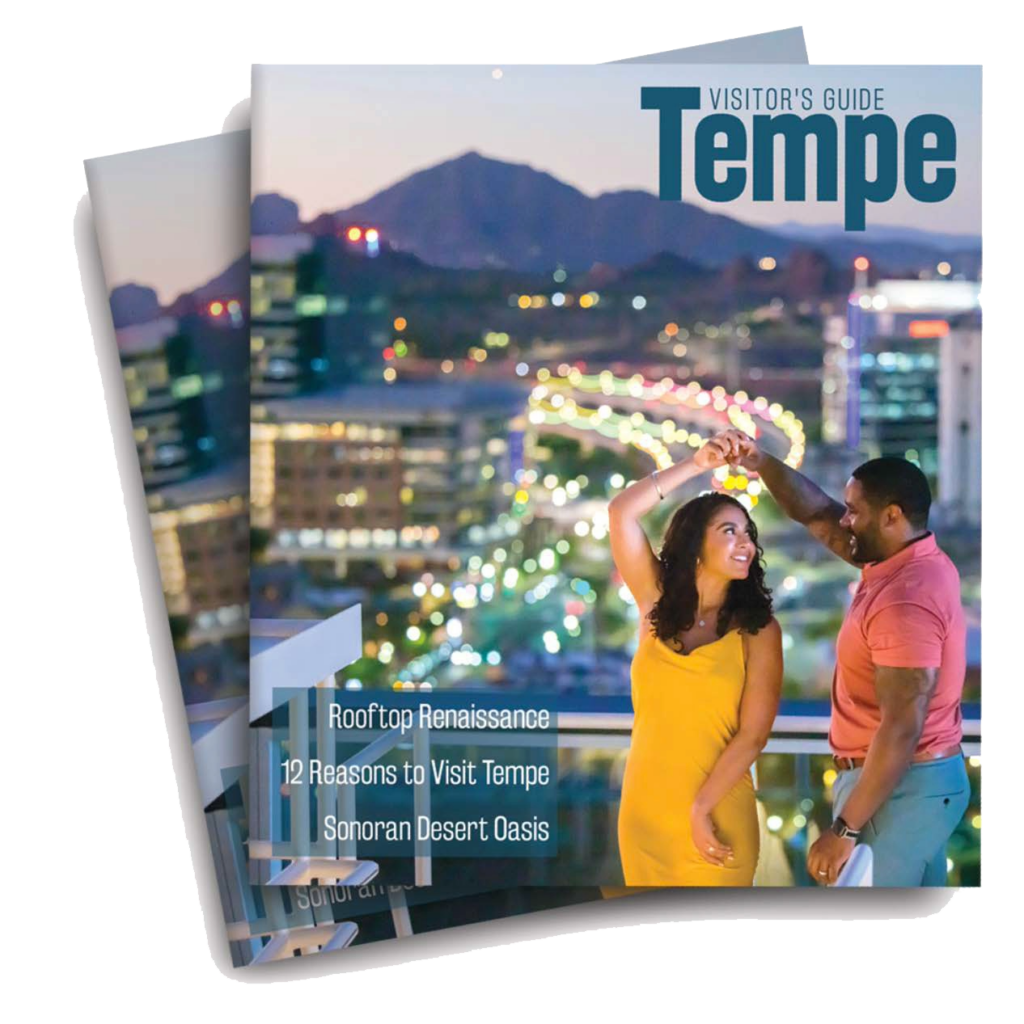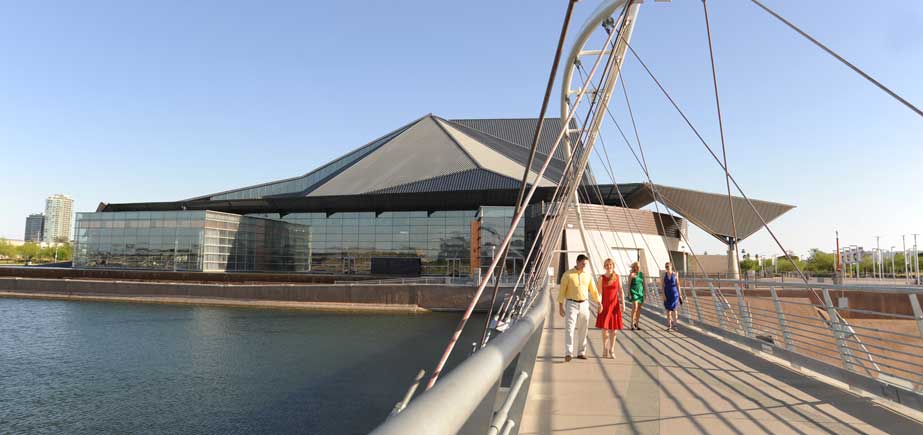
Refreshingly Offbeat & Sunsets on Repeat
Tempe embraces an active lifestyle and laid-back atmosphere and it’s a place where community matters. Refreshingly offbeat, Tempe is a college town with a personality all its own. It’s a welcoming destination with a spirited lifestyle where you’ll find fun-filled activities at every turn. Let’s help you learn more about our city.


EXPLORE THE 2024 TEMPE VISITOR’S GUIDE!
Download your FREE Visitor’s Guide and start planning today!
View The Guide

Top places to catch a sunset
Check out some of the best spots in Tempe to capture the most mesmerizing sunsets.
Learn More
Fun & Games
If you’re looking for something a little different, and loads of fun, Tempe is the place for you.
Learn MoreBoots In The Park transforms Tempe Beach Park into a country music celebration, featuring craft food & beverages, line dancing, art installations and much more!
See What Our Town is All About
fresh from the blog
view all articles
Golf Courses in Tempe
Are you planning a trip to Tempe? Make sure to set aside time to hit the links! Tempe offers a variety of picturesque golf courses that are conveniently located near hotels, restaurants and attractions.

9 Reasons We’re Stoked about Summer in Tempe
It’s officially summer, and Tempe’s wide variety of cool pools, indoor adventures and the best deals of the year welcome visitors and locals all season long.





